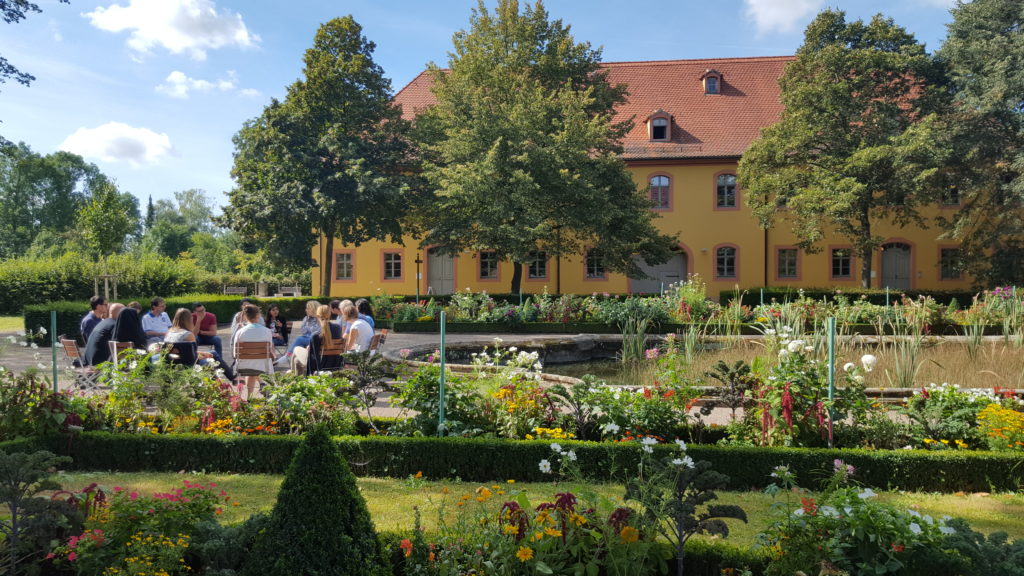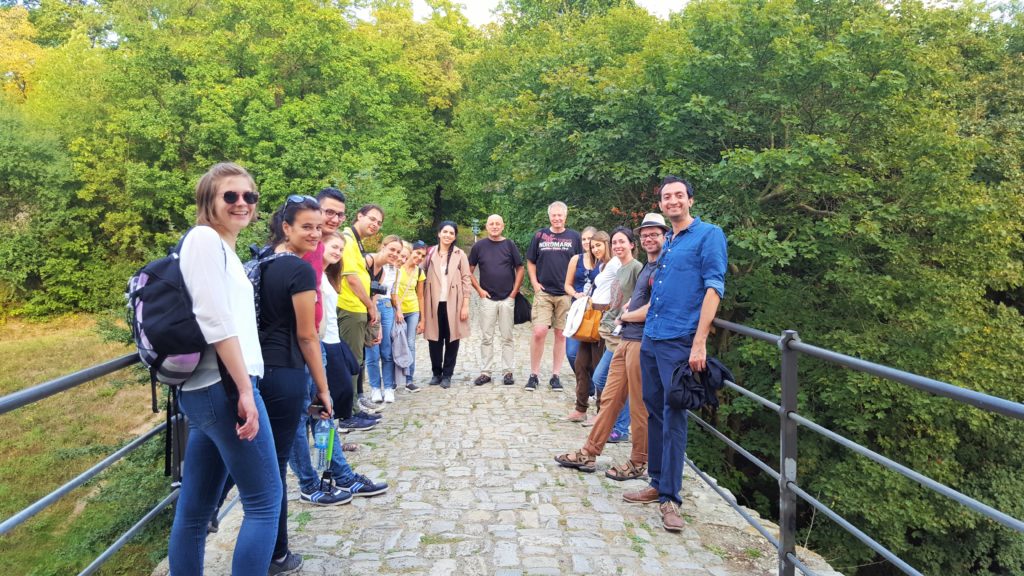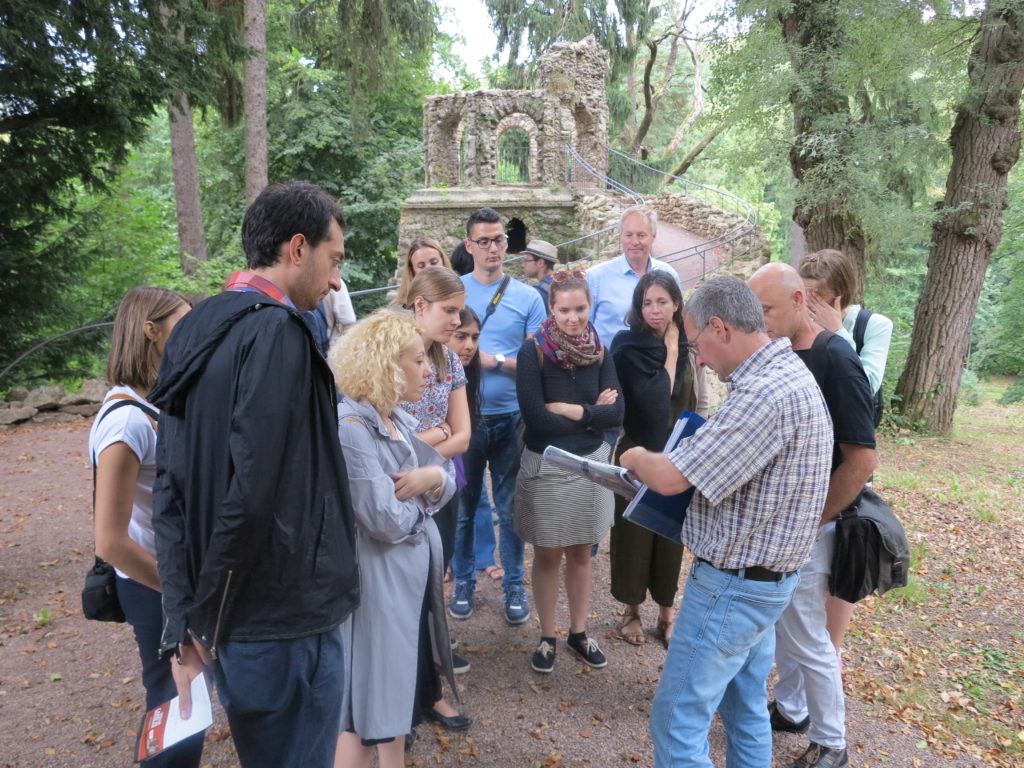Heritage Times Seminars
Social Media Volunteers for Heritage Kick-Off Seminar
By Stenette van den Berg

A refreshing rain started falling the moment I stepped off the train in Oẞmannstedt, interrupting the heat of summer’s last days for a moment. I took it as a good sign, and felt excited as I started making my way to the Wieland Estate, a baroque manor house complex surrounded by a park that was home to the influential German poet, writer and publicist Cristoph Martin Wieland (1733-1813) between 1797 and 1803.
Contemporary of Johann Wolfgang Goethe, Friedrich von Schiller and Johann Gottfried Herder, Wieland was a free and progressive thinker, open to different cultures with a philosophy rooted in the belief of human progress and perfectibility. Having come here to attend a conference for the creation a new platform that will see the coming together of cultures from all over Europe, I cannot imagine a more fitting venue. I do not know this yet, but the platform will come to be called Heritage Times, the details of which will be hashed out over the next four days at this conference that I am attending. I have come as one of the first twelve volunteers chosen for Social Media Volunteers for Heritage – a collaborative project between Europa Nostra and European Heritage Volunteers.
During his final years, Wieland’s residence in Weimar became a place of pilgrimage for some of Germany’s most promising writers. Although the Wieland Estate was not his final place of residence as he was forced to sell it due to financial difficulties, my mission in coming here, which is to become part of this initiative that promotes cross-cultural communication, feels important enough to be labelled “pilgrimage-worthy”. The tranquillity of the country manor and its garden, with its large fountain and dancing flowerbeds, begs a kind of serenity, and I instantly understand why Wieland chose it as his sanctuary.
A few hours later, seventeen people are seated in a circle in the garden room of the manor. By now we have broken bread together and the atmosphere is pleasant. Apart from the volunteers, we are joined by Bert Ludwig, Director of European Heritage Volunteers as well as Editor of the Europa Nostra Heritage in Motion Magazine – Wolter Braamhorst. With him representing Europa Nostra is Web Communication Officer for Europa Nostra’s International Division – Giuseppe Simone, and Projects and Communication Assistant, Manon Richard. Social Media Volunteers for Heritage has been a year in the making, we learn, and we have a partnership struck between Ludwig and Braamhorst to thank for it.

The coming days will be demanding, but this is to be expected – creating something where there was nothing before has never been easy. Over the next few days we are confronted by different representations of German heritage and the unique challenges that they face. This includes visits to Weimar, Apolda and the Belvedere Castle complex. Weimar is known as the cultural heart of Germany’s Thüringen region and is the centre of the UNESCO World Heritage Ensemble Site “Classical Weimar”. The town was of particular importance during the period of Enlightenment when it was home to Goethe and Schiller. Apolda is a small town five-minutes by train from Oẞmannstedt, that experienced its moment of glory during the Industrial Period, but today struggles with an ever-declining population. Belvedere Castle was the summer residence to the Duke Ernst August of Saxe-Weimar-Eisenach until 1748, and then went to his successors with the last Duke leaving in 1918 following the First World War, serving as a museum today. Our nights were spent discussing the technical aspects of the platform as well as the meaning and importance of the various different types of heritage that exist, and the best ways in which to represent them on social media platforms.

By the end of the week, we all had a better idea of where we wanted this initiative to head to and the necessary steps needed to take in order to achieve this. As each of us left to the return to our daily lives, enriched by the experience that we had had and excited for what is to come, I remember reflecting back on it, thinking that it is now that the real work starts. Now, and I cannot wait.
XXXXXXXXXXXXXXXXX